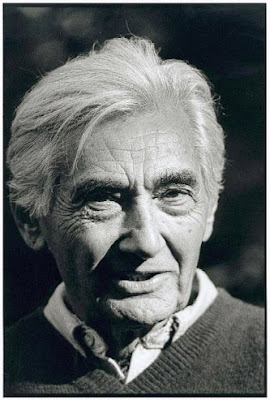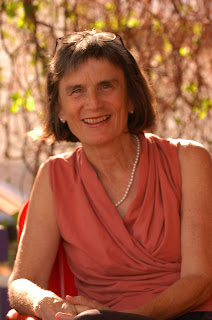HOWARD ZINN (August 24, 1922 – January 27, 2010)
Howard Zinn
(portrait from Identity Theory website
where you will find interviews and articles about Zinn)
Historian Howard Zinn died yesterday. Zinn is most well-known for his classic A People's History of the United States of America, which documents the grassroots activism and its heroes that have always moved this country forward. His writing has been a touchstone for our understanding of publishing as it has for so many of our colleagues in the independent publishing world. But Zinn was much more than his scholarship. He was a speaker who moved people to contribute to their own history through activism and he was, of course, an activist himself. We here at Cinco Puntos learned about Zinn's death through our friend, the sports writer and sports historian David Zirin who counted Zinn as a hero, mentor and friend. You can read David's article here on the Nation website. As David says of Zinn's books, "It was history writ by Robin Hood, speaking to a desire so many share: to actually make history instead of being history's victim."
From the Wikipedia article linked to above, I was especially moved by the description of Zinn's service as a bombardier during the 2nd World War:
Zinn eagerly joined the Army Air Force during World War II to fight fascism, and he bombed targets in Berlin, Czechoslovakia and Hungary. Zinn's later anti-war stance was, in part, informed by his own experiences in the military. In April, 1945, he participated in one of the first military uses of napalm, which took place in Royan, France.
The bombings were aimed at German soldiers who were, in Zinn's words, hiding and waiting out the closing days of the war. The attacks killed not only the German soldiers but also French civilians, facts Zinn uncovered nine years after the bombings when he visited Royan to examine documents and interview residents. In his books, The Politics of History and The Zinn Reader, he described how the bombing was ordered at the war's end by decision-makers most probably motivated by the desire for career advancement rather than for legitimate military objectives.
Zinn said his experience as a bombardier, combined with his research into the reasons for and effects of the bombing of Royan, sensitized him to the ethical dilemmas faced by G.I.s during wartime. Zinn questioned the justifications for military operations inflicting civilian casualties in the Allied bombing of cities such as Dresden, Royan, Tokyo, and Hiroshima and Nagasaki in World War II, Hanoi during the U.S. war in Vietnam, and Baghdad during the U.S. war in Iraq. In his pamphlet "Hiroshima: Breaking the Silence", Zinn laid out the case against targeting civilians.



Comments